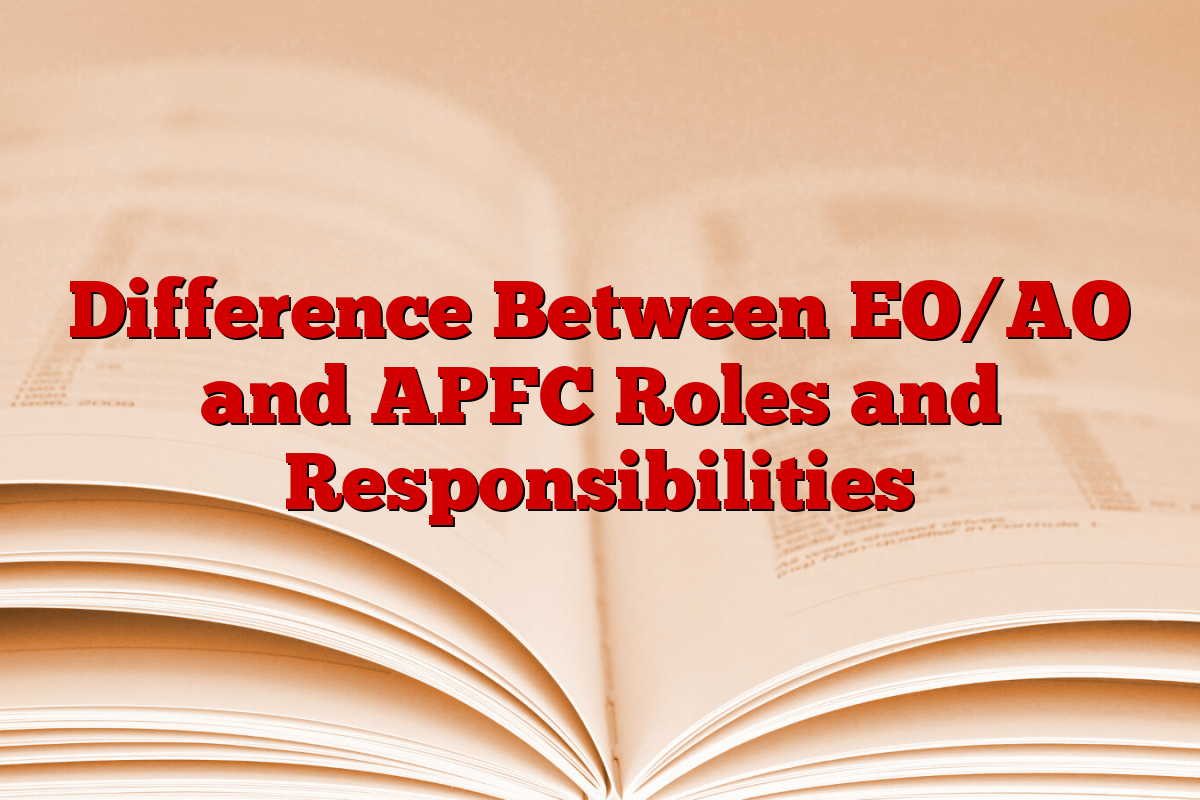Employees Provident Fund Organization (EPFO) conducts recruitment drives through UPSC for two separate posts: Enforcement Officer/ Accounts Officer (EO/ AO) and Assistant Provident Fund Commissioner (APFC). Although both roles are part of the same organization and work towards management of social security works under the Ministry of Labor and Employment, there are significant differences in their responsibilities, authority levels and job functions. Understanding these differences is important for candidates preparing for one of these exams, as both roles have greatly vary in the nature of duties and progress of career.
Difference between EO/AO and APFC
While both EO/AO and APFC roles fall under the umbrella of the umbrella UPSC EPFO Recruitment 2025They vary greatly in the context of responsibility, rights and job nature. EO/AO exceeds an enforcement and field role that relates to day-to-day compliance, while APFC is a managerial and policy-powered posts including supervision and administration. Candidates must carefully evaluate these differences before choosing which post aligns with its career goals, functioning preferences and long -term aspirations.
EO/AO Role and Responses
Enforcement Officer/Accounts Officer (EO/AO), with 154 vacancies in 2025, mainly works at the ground level, ensuring that establishments are complying with EPFO rules.
- The EPF and MP Act inspects factories and establishments to ensure compliance with 1952.
- Timely EPF monitors the contribution from employers and identifies cases of non-paying or irregularities.
- EPF handles the complaints of customers related to accounts, claims and contribution.
- Notices for defaulters and initiation against non-transportation organizations.
- The employee maintains accounts and records related to provident fund contribution.
- The defaulting assists in recovery proceedings to collect arrears from installations.
- Regular field offices may require to visit and to conduct compliance with surprise.
- To implement statutory obligations is directly attached to both employers and employees.
- The role is mainly field-oriented and enforcement-based.
- At the grassroots level, a group B was classified as a non-gol post with the operational authority.
APFC Role and Responsible
On the other hand, Assistant Provident Fund Commissioner (APFC) plays a more administrative and supervisory role.
- A group within the EPFO holds the status of a gazetted officer.
- Many EO/AOS oversees and ensure proper functioning of regional/zonal offices.
- EPFO responsible for the implementation of EPFO schemes and policies in the prescribed areas.
- The policy handles the execution, inter-department coordination and financial plan.
- EPF takes a high-level administrative decisions related to operation.
- The EPF takes care of legal matters under the Act and may represent EPFOs in courts or tribunals.
- Manages large versions of organizational and financial data.
- Coordinated audit, internal inspection and compliance review.
- Under their jurisdiction, ensure smooth operation of all field offices.
- Mainly an office-based role focuses on administration and strategic decision making.
Major differences between EPFO EO/AO and APFC
While both EO/AO and APFC officials contribute to the same organizational mission, there are many differences in the nature of their work:
Position Level: EO/AO is a group B non-gazetted post, while APFC is a group a gazetted post.
nature of duties: EO/AOS are primarily responsible for fieldwork and enforcement, while APFCs perform administrative and supervisory work.
rights: APFCs have a high rank and it can issue instructions for EO/AOS. They are involved in decision -making processes and policy execution.
Posting: EO/AOS are posted in regional or sub-regional offices and are often in the region. APFCs are more likely to work from regional or main offices.
Legal and Policy Work: While EO/AOS deal with compliance at a basic level, APFC handle court cases, legal interpretations and inter-department communications.

